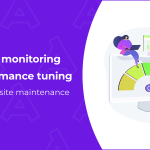Ever spent months googling laser eye surgery, only to get overwhelmed and close your laptop? Too many options, too many scary stories online, and too much conflicting information. Most people go through this exact cycle multiple times before actually booking a consultation.
The moment of truth usually comes at the worst possible time. Dropping glasses in a pub toilet, losing a contact lens at the beach, or just being fed up with the daily hassle of corrective lenses. That’s when you realise you’ve been putting this off for way too long.
Laser eye surgery isn’t something you should rush into. Many people learn this when the first clinic they visit tries pushing them toward their most expensive package without properly checking if they’re even suitable.
1. Are You Suitable?
First things first. Not everyone can have laser surgery. Some people discover their prescription is borderline too high for certain procedures. Annoying, but better to know upfront than have problems later.
Your age matters loads. Most surgeons won’t touch you if you’re under 21 because your eyes might still be changing. They also want your prescription stable for at least a year.
Here’s what typically rules people out:
Common disqualifying factors include various eye conditions and prescription issues:
- Changing prescriptions: If your glasses prescription keeps changing every year, wait until it settles
- Eye diseases: Things like glaucoma or severe dry eyes can make surgery risky
- Extreme prescriptions: There are limits to what can be corrected safely
- Thin corneas: Not enough tissue to work with without causing problems
Don’t try hiding medical issues. People who lie about dry eyes often suffer for months afterwards.
2. Finding Someone Decent
The biggest mistake people make is choosing based on price. The cheapest places often feel like factories where you’re just another number. When you switch to a more experienced surgeon, the difference is obvious.
Look for proper qualifications in eye surgery, not just any medical degree. Ask how many procedures they’ve done and what goes wrong sometimes. Good surgeons are happy to discuss this stuff.
3. Understanding the Options
The technology choices can be confusing, but here’s what matters:
Modern systems offer different approaches with various trade-offs:
- Wavefront treatment: Maps your eye’s unique problems for customised correction. Good for people with complex prescriptions
- Topography-guided: Uses detailed corneal mapping. Helpful for irregular surfaces or previous eye injuries
- All-laser LASIK: Uses lasers instead of blades for everything. Potentially safer but costs more
Don’t get caught up in marketing about “revolutionary new technology.” Sometimes older, proven methods work better for your situation.
4. The Money Side
Most procedures cost around £4,000 in total. People work out they’re spending roughly £300 yearly on contacts and solutions, plus new glasses occasionally.
Most insurance won’t cover elective eye surgery, but check if your work offers vision benefits or medical savings accounts. Some places do payment plans but read the small print carefully.
Be suspicious of deals that seem too cheap. “Free” consultations that turn into sales pitches. Bargain pricing that only applies to perfect candidates (hardly anyone qualifies).
Conclusion: Recovery Expectations
People who choose PRK are usually back at work within a week, but vision takes about a month to fully settle. Those who get LASIK are often playing sports again in days.
Your surgeon should give realistic expectations about healing time, discomfort levels, and activity restrictions. Don’t plan surgery right before important events or holidays.
Everyone heals differently. Some have more discomfort. Some need touch-up procedures. All normal, but good to know beforehand. Take your time deciding. Don’t let anyone pressure you into quick decisions.
Lynn Martelli is an editor at Readability. She received her MFA in Creative Writing from Antioch University and has worked as an editor for over 10 years. Lynn has edited a wide variety of books, including fiction, non-fiction, memoirs, and more. In her free time, Lynn enjoys reading, writing, and spending time with her family and friends.















